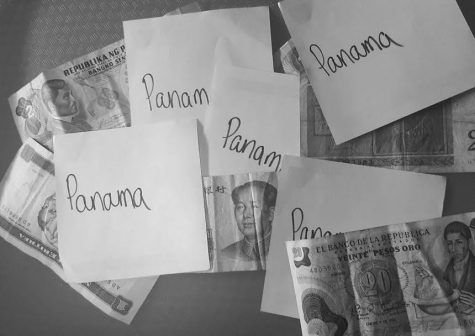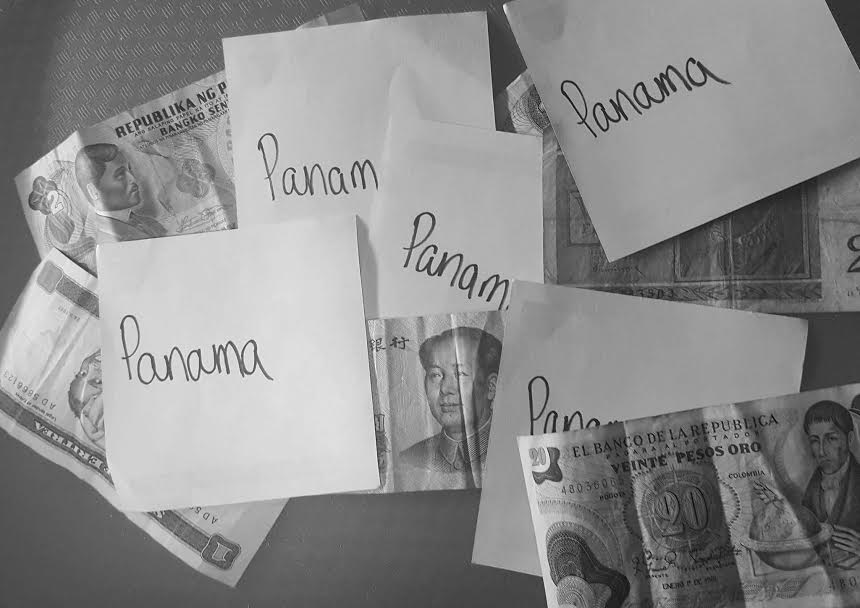Panama Papers Reveal Who’s Getting Paper
Nearly a decade ago, a man named Julian Assange instigated Wikileaks, a website which allows the informed to anonymously blow their whistles on a public spectrum. By 2010, Wikileaks became a subject of major controversy when hundreds of thousands of classified documents were released insinuating the United States government in the coverup of military malpractice, amongst other things. WikiLeaks threatened to compromise the national security of multiple countries by exposing secrets of governments and many high-profile organizations. Assange is now hiding out in the Ecuadorean embassy, wanted in several countries but his travail for transparency has far from died out.

On April 3rd, hundreds of reporters released over 11 million files in what are known as the Panama Papers. Comparatively, if WikiLeaks was a rather risqué issue of Us Weekly, this is Watergate with nearly a hundred times more data. The Panama Papers have brought to front and center the realm of corruption that the globe’s rich and powerful happily reside in. Here’s how it went down:
Mossack Fonseca is one of the world’s largest offshore law firms which means it specializes in helping clients set up shell corporations in foreign countries such as the Cayman Islands where they are protected from taxes and other financial hinderances which they would otherwise face in their nation of residence. Essentially, it provides a facade for the filthy rich to hide their money. Mossack Fonseca which is based in Ciudad de Panama happens to provide its services to dozens of national leaders among hundreds of politicians. For over a year, a consortium of journalists adhered to the task of reviewing terabytes of invoices, financial documents and emails implicating the world’s political elite in involvement with Mossack Fonseca until finally releasing them to the public this April.
Among the implicated is Russia’s very own Vladimir Putin. The president’s inner circle, which consists of business partners, friends and KGB members, is clandestinely linked to a web of offshore shell companies worth over $2 billion. In Russia, these claims have had little effect on public opinion as the Kremlin has trivialized the papers as another act of American “Putinophobia,” as they call it. With hundreds of other important figures accentuated in the papers, the conspiracy of it being nothing more than another attack on Putin hasn’t managed to stand outside of Russia.
Brasil, a nation in the midst of a strenuous recession and controversy surrounding the plausible impeachment of corrupt president Dilma Rouseff amongst its preparations for the Rio Olympic Games was hit particularly hard by the Panama Papers. Rouseff is alleged to have illegally taken money from state banks to coverup shortcomings in the budget leading to the beginnings of a trial for her removal from office. To add insult to injury, Operação Lava Jato Operation Car Wash has been revealed in which Brazilian politicians are skimming money from the country’s petroleum industry. The Panama Papers tied over 50 people and 100 shell companies to the operation. The most prominent participant happens to be Eduardo Cunha, who is leading the movement to Rouseff’s impeachment. With both sides involved in corruption, the Brazilian people are understandably discontent.
In the wide array of bureaucrats and business elite incriminated in the Panama Papers, The City of London is the very center of the spider’s web. Unbeknownst to many, The City of London is its own municipality within London, which has been its own entity for hundreds of years. It has its own government, rules and police force and is the perfect opportunity for money laundering. As estates in the London are valued at such high prices of millions of dollars, criminals have been using shell companies to buy property in London instantly turning their dirty money into clean assets. The Panama Papers have come to show that of the 30 thousand London properties owned by offshore companies, the large majority of them are linked to foreigners with hidden ties to government leaders such as the prime minister of Pakistan, Nawaz Sharif and Emirate’s Sheikh Al-Nahyan. This leak of information has since compromised Middle Eastern leaders and increased skepticism in the London real estate market where high prices are already driving out many native Londoners.
Quite peculiarly, there lacks American presence in the reports. It goes without saying that our nation’s rich aren’t unlike their foreign counterparts in their grand desire to evade even minimal taxation so how did we escape this massive data leak? One theory is Russia’s aforementioned idea of the papers as an American conspiracy. A more probable explanation, is that Americans don’t need to leave the country to save themselves from taxes. Forget the Bahamas; Delaware and Nevada, for instance are states that fail to collect corporate income taxes thus creating their own local tax havens. Conspiracy or not, the Panama Papers share more than the corrupt actions of the political elite: they bring into view the skew of wealth inequality in the world as a whole. According to economist Gabriel Zuchman, it can be estimated that 20 percent of all of the wealth in Latin America is hidden in offshore accounts; 50 percent in Russia. What this means is that the few people who have money have a lot of money and they will do whatever they can to protect it. Sometimes it takes a massive scandal to remind us of that.






